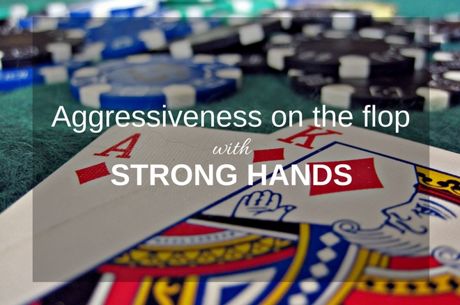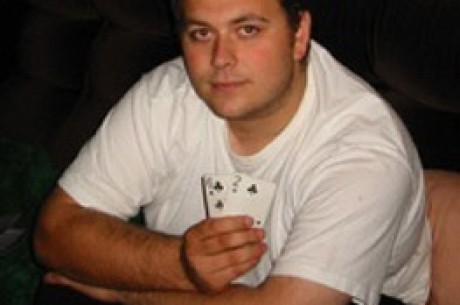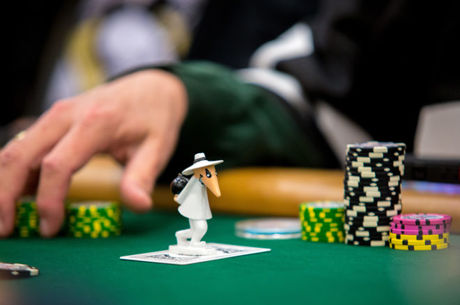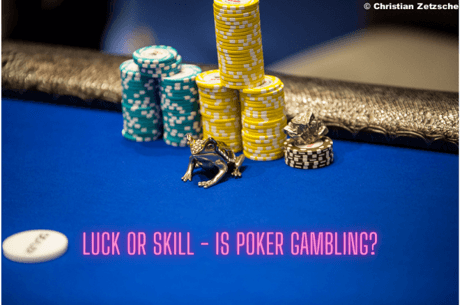Disrupting the flow of a hand in poker
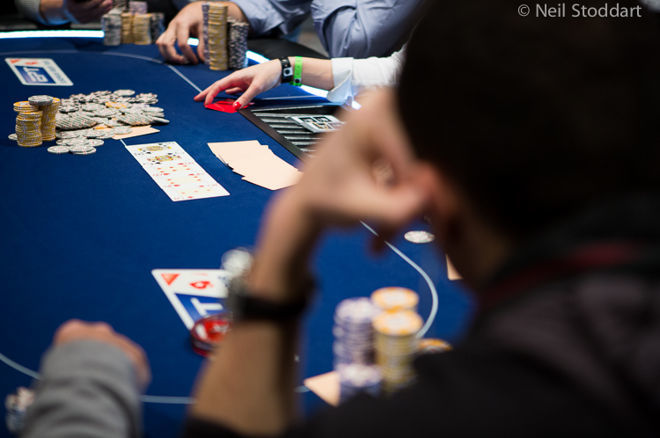
Disrupting the flow of a hand is when you do something that is the opposite of what your opponent expected. This usually triggers a response of concern in your opponents regarding the strength of their hand. Disrupting the flow can accomplish many different things, but ultimately it works to confuse your opponents. So if you think that confusing your opponent is necessary in a particular situation, go ahead and disrupt the flow.
The normal flow of a hand
Forget about specific hands and just consider the regular flow of a usual hand. Let's say Players A, B, and C are sitting next to each other in that order. On the flop, player A checks, player B checks and player C bets. Players A and B then call. On the turn, A and B check again. C usually bets again. Maybe one or both will call. On the river, player A and/or B check again and player C either shows down or makes a last bet.
Disruption of the flow
Disrupting the flow is effectively interfering in some way with the cycle above. Let's say you are player A. Let's say you check-raised the flop or came out betting on the turn after C bet the flop. You would be disrupting the expected flow of the hand and your play usually has an effect on both B and C. A word of warning: this is a weapon that you must use sparingly. If you use it too often, it will lose its effectiveness. Reserve it for occasions when it is advantageous to confuse or scare your opponents.
Example 1
This was a play I made in my last session and it worked an absolute treat. Before the flop, an observant but loose'ish player called and a third player raised. This third player was a fairly conservative player and when he raised before the flop, he usually had a reasonably good starting hand. Further, he had a very 'typical' approach to the game. I called from the big blind with 8-7 off suit and the loose player between us called. The flop came Q-5-6. I checked, the loose player checked and the third player bet (as expected). I called and so did the loose player (more or less as expected). On the turn, an 8 fell. I immediately bet (unexpectedly).
I have now completely disrupted the flow of this hand. The loose player paused and then folded and the third player looked at his cards and then called fairly quickly (indicating that he would probably call me on the river). On the river, a 2 came and I checked. He looked very confused and also checked. I showed my pair of eights and he rolled over A-Q and won the pot.
While I lost the pot, I saved money by disrupting the flow as I would probably have called a bet on the turn and the river from this guy with my hand. This means I would make two crying calls. By confusing him with an unexpected bet on the turn, I saved a bet on the river However, if I hit one of my outs, I would surely bet and he would surely call. This means that by disrupting the flow on the hand on the turn, I will either showdown a potential winning hand for free on the river or I may extract an extra bet if I draw out. As a result, it is likely that I will not have to pay off the winning hand on the river.
From the perspective of my opponents
First let's look at this hand from the loose player's perspective.
The loose player is in a really difficult spot when I bet on the turn. He knows that one of us has a pair of queens or better. Further, if he calls with a weak hand or draw, the third player may then raise. Unless he has a big hand, he is probably going to fold.
I am happy to see him fold. If I am in front on the turn and this loose player has a hand like J-6 suited, I would like him to fold. If the third player has AK as I put him on, I don't want to lose this pot to the loose player when a jack or 6 falls on the river. By pushing him out, I have increased the number of safe river cards for my hand (if I have the best hand on the turn).
Even if my hand is not in front of the third player (which was the case in this hand), my outs are 4, 7, 8 or 9. If this loose player has a 4, 7, 8 or 9 in the hole, he will reduce my outs to some degree. For example, if he has a 9, then a seven on the river would give him the straight and give me two pair. So while I would beat A-Q, I would lose to this loose player. As I would prefer to have every out possible when I am behind, I want him fold and leave all the outs to me. I achieved my objective (getting him to fold) when I disrupted the flow of the hand on the turn.
Now let's look at this hand from the perspective of the third player.
He has A-Q and raised before the flop. He has position on the two callers, so everything looks good. The flop comes Q-5-6. This is perfect. After two checks, he bets comfortably and both opponents call. He has now already mapped out the rest on this hand. He will bet the turn and then the river and win a reasonably good pot. It's a foregone conclusion. Now he has sort of .dropped his guard by becoming complacent about his hand.
On the turn an 8 falls which seems pretty harmless from his perspective. All of a sudden, I come out betting. This third player simply cannot put me on a hand. Because he is holding AQ, he is now very confused as he thought he had this hand won without a problem. Maybe I hit a set? Maybe I hit a straight? Maybe I made two pair? Did I slow play pocket Kings before the flop? I have disrupted the flow of this hand and he is completely lost. All he can think is that I may well have him beat. So he calls and intends to call me down on the river. When an irrelevant card falls on the river, I checked to him. This looks like a potential check-raise attempt by me, so he checked behind me.
Example 2
This tactic also works occasionally when you want a free card on the turn and you are in an early position. It can also be the prelude to a bluff. Let's say I have Qd-Jd in the small blind. A middle position player raises and two late position players call the raise cold. I also call. The flop is Kd-9s-3d. I have a gut shot draw and a flush draw, not to mention the possibility that a jack or queen may win the pot for me.
Now I may check this to the middle position preflop raiser. He will usually bet. After a few calls behind him, I then check-raise the field. This looks very suspicious to my opponents and they cannot work out what I have, but assume it's a good hand. They don't put me on a draw because check-raising from an early position with a draw would appear to be an unusual move.
If a flush or straight card falls on the turn, none of these players will give me credit for a straight/flush and are more prone to paying me off. The disruption of the normal flow of the hand has confused my opponents about the nature of my hand. When I improve to a straight or flush, my hand is very hidden because of the unusual play I made on the flop. This is always beneficial to me and can earn me good sized pots.
More to the point, if the turn doesn't improve my hand and then I check, my opponents will be very reluctant to bet into me because I check raised the flop. In most cases, even a field of 4 or 5 may check behind me after I make this play on the flop. They are confused and don't want to look stupid by being check-raised twice. This earns me a free card on the turn.
Alternatively, it opens the door for a bluffing opportunity. If the next card is another King and I come out betting, many will strongly suspect that I have trips at the very least and fold their hand if they can't beat that. Because I check-raised the flop from an early position, very few players will put me on a bluff.
To finish, I want to reiterate that this is a play to be used sparingly. It is regarded as a bit of a tricky play and when your opponents work out what you're doing, it will not be as successful anymore.

